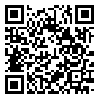Volume 10, Issue 44 (4-2022)
erj 2022, __(44): 19-39 |
Back to browse issues page
Download citation:
BibTeX | RIS | EndNote | Medlars | ProCite | Reference Manager | RefWorks
Send citation to:



BibTeX | RIS | EndNote | Medlars | ProCite | Reference Manager | RefWorks
Send citation to:
Bohlooli Faskhoodi M. Analysis of the Wittgenstein teaching model based on tacit knowledge approach. erj 2022; 10 (44) : 2
URL: http://erj.khu.ac.ir/article-1-1032-en.html
URL: http://erj.khu.ac.ir/article-1-1032-en.html
Research Institute of Humanities and Cultural Studies , m.bohlooli@ihcs.ac.ir
Abstract: (7124 Views)
Knowledge has two explicit and tacit parts. The field of teaching and learning is traditionally based on explicit knowledge teachings and emphasized the important role of propositional knowledge for the explicit and universal expression of knowledge. But tacit knowledge with the three main characteristics of inarticulate, breaking rules and context oriented are the exact opposite of explicit knowledge. On the other hand, Wittgenstein's attitude in the second half of his intellectual life about the functional role of language and its relation to human thought has had a very important impact on the views of the philosophy of education, especially the field of teaching and learning. Combining functional-language approach with tacit knowledge theory in teaching and learning has led to the formation of a model of teaching as tacit teaching which has different dimensions and applications than the previous approach. Wittgenstein's view of education and teaching experience is one of the most important components of this kind of teaching model. The purpose of this paper is to show the relationship between the main components of the teaching of implicit teaching and Wittgenstein's teachings in the philosophical investigation. To achieve this, the method of qualitative analysis with a linguistic analysis approach has been used to study Wittgenstein's works and the theories on tacit knowledge of the subject.
Article number: 2
Type of Study: Research Paper |
Subject:
Educational Philosophy
Received: 2021/08/4 | Revised: 2023/11/21 | Accepted: 2022/06/16 | ePublished: 2022/07/7
Received: 2021/08/4 | Revised: 2023/11/21 | Accepted: 2022/06/16 | ePublished: 2022/07/7
Send email to the article author
| Rights and permissions | |
 |
This work is licensed under a Creative Commons Attribution-NonCommercial 4.0 International License. |





